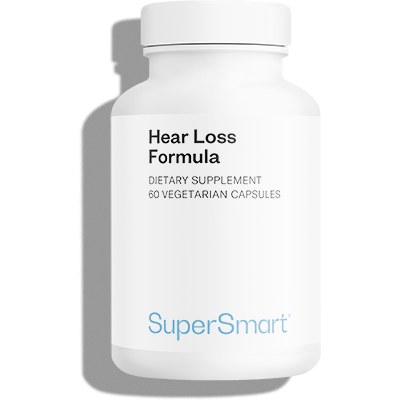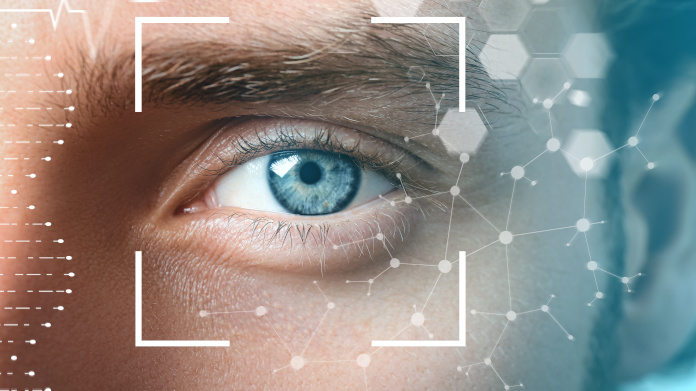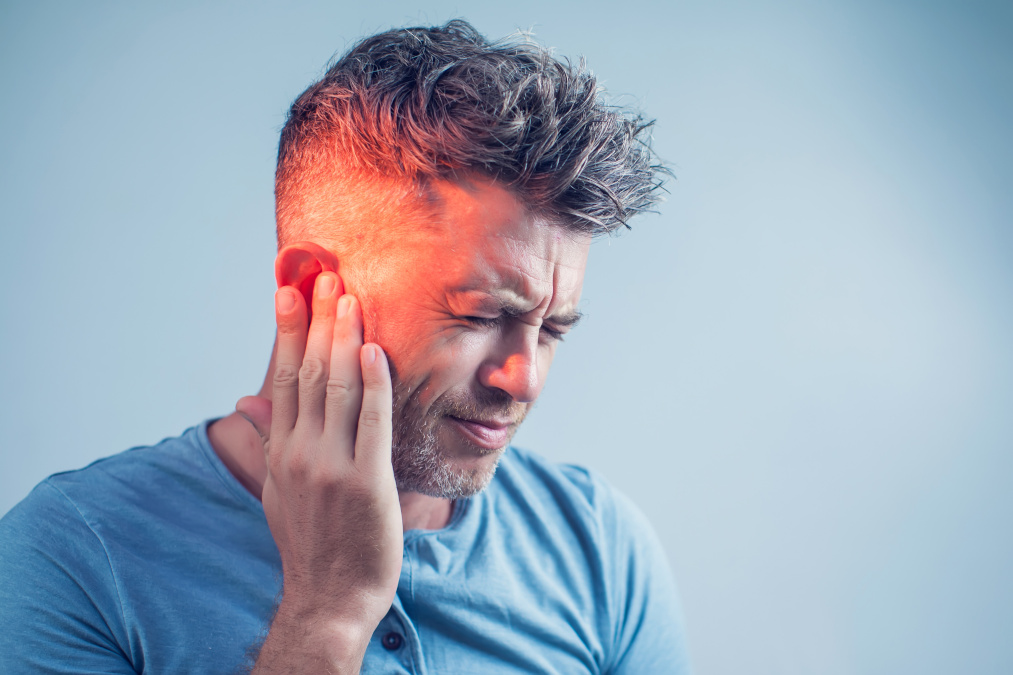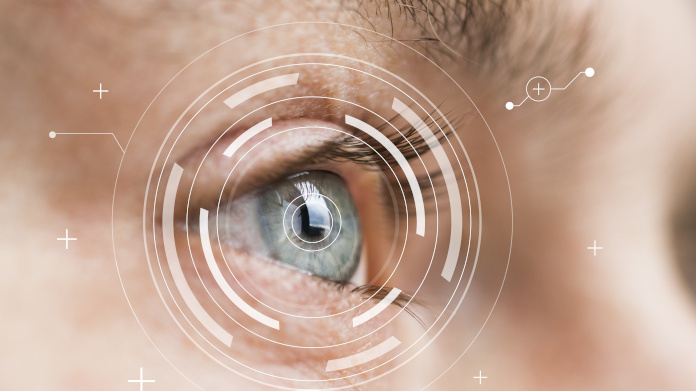Is it dangerous to sleep with earphones in?
Many of us like to drop off listening to a podcast or some music. But is falling into a deep sleep wearing earbuds really a good idea?

Falling asleep wearing earphones: a risky practice?
Though we may like to be rocked off to sleep by our favourite hit songs, sleeping with earbuds in is not necessarily a good habit to get into for several reasons.
Firstly, listening to all kinds of sounds throughout the night (even at low volume) increases the risk of hearing problems (1). This is not only due to the prolonged listening period but also to increased fragility of our eardrums: as blood flow decreases when we’re asleep, the ears are less resistant to noise disturbance. This can result in premature hearing loss as well as ringing or buzzing in the ears (tinnitus) (2).
Since music is known to reduce feelings of stress, it should logically make it easier to fall asleep. Paradoxically however, several studies have shown that playing your favourite playlist just before you drop off leads to worse-quality sleep.
This is because of involuntary musical imagery, better known as ‘earworms’ (3-4). In other words, a particular song remains stuck in your head, to the point where it’s still playing on a loop when you wake up. This problem is more likely to occur when attention is lower (as in the evening).
These nocturnal earworms can be quite invasive, potentially extending the time it takes to fall asleep, causing more wakefulness during the night and destabilizing the sleep cycle (with a shift from deep sleep to lighter sleep).
There are various reports, which although exceptional, also give pause for thought. A case of fatal electrocution was reported in a Malaysian teenager who had fallen asleep wearing his earbuds plugged into his phone on charge. Another young man, wearing Apple’s famous AirPods, accidentally swallowed one of his wireless earbuds during the night (his smartphone located it in his stomach in the early hours). Fortunately, he was none the worse after it passed through his system with the aid of laxatives.
Last but not least, there’s a continuing debate around the impact of wireless technologies on health. While no scientific study has so far established a link between radio waves (such as Bluetooth) and brain or acoustic nerve tumours, the theory has not been completely rejected due to the proximity of the earphones to the auditory canal (5-7).
Natural tips for maintaining your hearing
To take care of your ears and keep your hearing sharp, it’s a good idea to adopt a few common-sense measures:
- protect your ears with earplugs or noise-cancelling headphones when you find yourself in a very noisy environment (building sites, concerts …) (8);
- turn down the volume on your earbuds or headphones (< to 80 dB or 60% of their maximum volume) and use them less frequently if possible (9) ;
- don’t clean inside your ear canal, as earwax will get rid of any impurities. Cotton buds should be reserved for external use only (for cleaning visible parts of the ear) to avoid perforating your eardrum and damaging your hearing (10) ;
- keep your ears warm and dry by covering them with a hat or ear-muffs in cold, windy weather. A drop in temperature, moisture and wind may all increase the risk of exostosis (excess bone growth in the ear canal) which can lead to hearing loss (11). Sportspeople who have to deal with water and wind are more exposed to this.
To curb hearing loss, it’s also wise to adopt a diet rich in antioxidants (red berries, green and orange vegetables, tea, cocoa …), as well as in vitamins C (citrus fruit, peppers, kiwi fruit…) and E (vegetable oils, almonds …) which help fight oxidative stress (12). These will counteract the harmful effects of free radicals on the hair cells of the inner ear, which are crucial to sound perception.
In addition, magnesium appears to be closely linked to glutathione, a powerful cellular shield (particularly auditory cells) (13). It also supports normal nervous system function by mediating the transmission of sound signals via the auditory nerve (14). To ensure a good intake, focus on whole grains, nuts and dark chocolate.
Certain plants can also boost auditory protection by addressing the vascular component in order to improve oxygenation of ear tissue. One such plant is gingko biloba, also known as the ‘tree of the 40 shields’, which helps maintain good peripheral circulation and especially auditory health (15). It can be found in targeted synergistic supplements (the comprehensive formulation Hear Loss Formula contains gingko, magnesium, vitamins D and E as well as cutting-edge compounds such as alpha-lipoic acid and quercetin) (16-17).
Less well-known, the lesser periwinkle (Vinca minor) helps maintain good mental health, especially in elderly individuals, due to its content of vincamine, an alkaloid effective at oxygenating the brain. Its effects on microcirculation have attracted so much scientific interest that it now features in supplements targeted at auditory health (like the natural formulation OptiHear, in which it’s combined with gingko and zinc for enhanced efficacy at fighting oxidative stress in ear cells) (19).
SUPERSMART ADVICE
References
- Byeon H. Associations between adolescents' earphone usage in noisy environments, hearing loss, and self-reported hearing problems in a nationally representative sample of South Korean middle and high school students. Medicine (Baltimore). 2021 Jan 22;100(3):e24056. doi: 10.1097/MD.0000000000024056. PMID: 33546006; PMCID: PMC7837842.
- Choi JH, Park SS, Kim SY. Associations of Earphone Use with Tinnitus and Anxiety/Depression. Noise Health. 2021 Oct-Dec;23(111):108-116. doi: 10.4103/nah.NAH_48_20. PMID: 34975126; PMCID: PMC8772443.
- Scullin MK, Gao C, Fillmore P. Bedtime Music, Involuntary Musical Imagery, and Sleep. Psychol Sci. 2021 Jul;32(7):985-997. doi: 10.1177/0956797621989724. Epub 2021 Jun 9. PMID: 34105416; PMCID: PMC8641138.
- Euser AM, Oosterhoff M, van Balkom I. Stuck song syndrome: musical obsessions - when to look for OCD. Br J Gen Pract. 2016 Feb;66(643):90. doi: 10.3399/bjgp16X683629. PMID: 26823252; PMCID: PMC4723199.
- Repacholi MH, Lerchl A, Röösli M, Sienkiewicz Z, Auvinen A, Breckenkamp J, d'Inzeo G, Elliott P, Frei P, Heinrich S, Lagroye I, Lahkola A, McCormick DL, Thomas S, Vecchia P. Systematic review of wireless phone use and brain cancer and other head tumors. Bioelectromagnetics. 2012 Apr;33(3):187-206. doi: 10.1002/bem.20716. Epub 2011 Oct 21. PMID: 22021071.
- Mandalà M, Colletti V, Sacchetto L, Manganotti P, Ramat S, Marcocci A, Colletti L. Effect of Bluetooth headset and mobile phone electromagnetic fields on the human auditory nerve. 2014 Jan;124(1):255-9. doi: 10.1002/lary.24103. Epub 2013 Apr 25. PMID: 23619813.
- Miller AB, Sears ME, Morgan LL, Davis DL, Hardell L, Oremus M, Soskolne CL. Risks to Health and Well-Being From Radio-Frequency Radiation Emitted by Cell Phones and Other Wireless Devices. Front Public Health. 2019 Aug 13;7:223. doi: 10.3389/fpubh.2019.00223. PMID: 31457001; PMCID: PMC6701402.
- Kwak C, Han W. The Effectiveness of Hearing Protection Devices: A Systematic Review and Meta-Analysis. Int J Environ Res Public Health. 2021 Nov 7;18(21):11693. doi: 10.3390/ijerph182111693. PMID: 34770206; PMCID: PMC8583416.
- Widen SE, Båsjö S, Möller C, Kähäri K. Headphone listening habits and hearing thresholds in swedish adolescents. Noise Health. 2017 May-Jun;19(88):125-132. doi: 10.4103/nah.NAH_65_16. PMID: 28615542; PMCID: PMC5501022.
- Hobson JC, Lavy JA. Use and abuse of cotton buds. J R Soc Med. 2005 Aug;98(8):360-1. doi: 10.1177/014107680509800808. PMID: 16055901; PMCID: PMC1181836.
- Landefeld K, Bart RM, Lau H, et al. Surfer's Ear. [Updated 2022 Aug 10]. In: StatPearls [Internet]. Treasure Island (FL): StatPearls Publishing; 2022 Jan-. Available from: https://www.ncbi.nlm.nih.gov/books/NBK534874/
- Petridou AI, Zagora ET, Petridis P, Korres GS, Gazouli M, Xenelis I, Kyrodimos E, Kontothanasi G, Kaliora AC. The Effect of Antioxidant Supplementation in Patients with Tinnitus and Normal Hearing or Hearing Loss: A Randomized, Double-Blind, Placebo Controlled Trial. 2019 Dec 12;11(12):3037. doi: 10.3390/nu11123037. PMID: 31842394; PMCID: PMC6950042.
- Regan RF, Guo Y. Magnesium deprivation decreases cellular reduced glutathione and causes oxidative neuronal death in murine cortical cultures. Brain Res. 2001 Jan 26;890(1):177-83. doi: 10.1016/s0006-8993(00)03156-5. PMID: 11164781.
- Sendowski I, Holy X, Raffin F, et al. Magnesium and hearing loss. In: Vink R, Nechifor M, editors. Magnesium in the Central Nervous System [Internet]. Adelaide (AU): University of Adelaide Press; 2011. Available from: https://www.ncbi.nlm.nih.gov/books/NBK507266/
- von Boetticher A. Ginkgo biloba extract in the treatment of tinnitus: a systematic review. Neuropsychiatr Dis Treat. 2011;7:441-7. doi: 10.2147/NDT.S22793. Epub 2011 Jul 28. PMID: 21857784; PMCID: PMC3157487.
- Quaranta N, Dicorato A, Matera V, D'Elia A, Quaranta A. The effect of alpha-lipoic acid on temporary threshold shift in humans: a preliminary study. Acta Otorhinolaryngol Ital. 2012 Dec;32(6):380-5. PMID: 23349557; PMCID: PMC3552536.
- Ma YK, Chen YB, Li P. Quercetin inhibits NTHi-triggered CXCR4 activation through suppressing IKKα/NF-κB and MAPK signaling pathways in otitis media. Int J Mol Med. 2018 Jul;42(1):248-258. doi: 10.3892/ijmm.2018.3577. Epub 2018 Mar 20. PMID: 29568908; PMCID: PMC5979834.
- Hussain G, Rasul A, Anwar H, Aziz N, Razzaq A, Wei W, Ali M, Li J, Li X. Role of Plant Derived Alkaloids and Their Mechanism in Neurodegenerative Disorders. Int J Biol Sci. 2018 Mar 9;14(3):341-357. doi: 10.7150/ijbs.23247. PMID: 29559851; PMCID: PMC5859479.
- Li Y, Zou Q, Zhang J. Vincamine exerts protective effect on spiral ganglion neurons in endolymphatic hydrops guinea pig models. Am J Transl Res. 2018 Nov 15;10(11):3650-3663. PMID: 30662616; PMCID: PMC6291722.
Keywords
56 Days
Very happy with the order and the…
Very happy with the order and the prompt team's response to an identified issue with my order.
KUQI Fatmir
63 Days
15 + years as a customer
I have been using their products for over 15 years as I find both the quality and pricing excellent.
Del Chandler
65 Days
Good quick delivery
Good quick delivery
Timothy O Shea
66 Days
Good service
Good communication following order. Product came within the time frame and was well packaged. The only confusing thing I found was in checking out. For some reason it is not clear how to do so and the current system should be improved.
Joe O Leary
75 Days
Simple and fast.
Simple and fast.
Nina
76 Days
Great product was definitely what is…
Great product was definitely what is says and arrived on without issue
customer
82 Days
I love reading those product facts on…
I love reading those product facts on Supersmart.com. Effective health products making permanent changes to my blood-work results and testes. However, I also have to order capsules from other websites.
NORDGULEN Olav
84 Days
Great products
Great products Very easy to choose, to order… and to get at home
Federica mastrojanni
87 Days
Service rapide et bons produits
Service rapide et bons produits
customer
88 Days
Good products and fast delivery
Good products and fast delivery
Trusted
93 Days
Does what it says on the can
I believe in this product Made to highest standard The ordering process is straightforward Delivery time prompt Excellent product, excellent service Happy customer ❤️
Sheba Kelleher
98 Days
Excellents produits
Excellents produits. Rien à dire si ce n'est qu'ils sont très chèrs.
MJS_France
100 Days
Very good supplement
Very good supplement
Glaveash
101 Days
Supersmart supplements are really…effective
Supersmart supplements are really effective and have helped me and family members and friends to improve their health including some of us with severe health problems including some with no existing medical treatment.
Anne Georget
103 Days
SuperBig Supersmart
SuperBig Supersmart
Pierre





